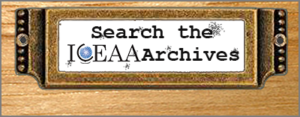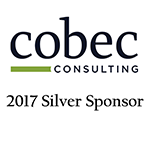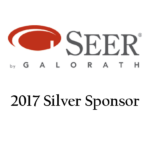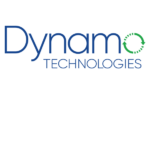 ICEAA’s annual Professional Development & Training Workshop brings together professionals from government, industry and academic cost communities for an intensive 3 1/2-day program dedicated to developing the understanding and appreciation of using data-driven estimating and analysis techniques.
ICEAA’s annual Professional Development & Training Workshop brings together professionals from government, industry and academic cost communities for an intensive 3 1/2-day program dedicated to developing the understanding and appreciation of using data-driven estimating and analysis techniques.
“This is the one annual event that all professional cost estimators should attend. It provides sessions on the latest trends and techniques, and offers excellent networking opportunities.” -2016 Attendee Testimonial
2017 Best Papers Training Session Descriptions Presentation Abstracts Speaker Bios
Keynote Speakers Sponsors & Exhibitors
The ICEAA Professional Development & Training Workshop meets all requirements for sponsored training activity attendance as outlined in the USGPO Code of Federal Regulations.
Thanks to our Sponsors & Exhibitors:
 |
||
 |
||
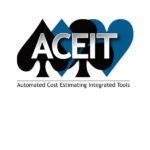 |
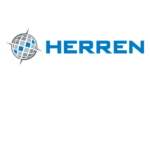 |
|
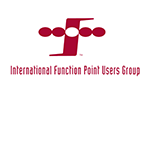 |
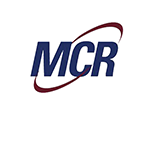 |
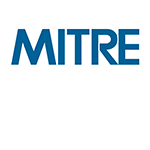 |
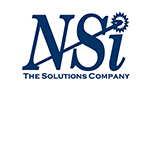 |
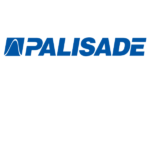 |
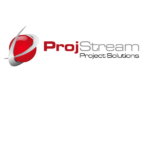 |
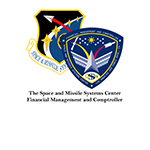 |
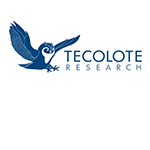 |
|
2017 Best Papers:
ICEAA’s Best Paper process begins when authors are selected to present at the ICEAA Professional Development & Training Workshop, who may choose to submit a narrative-format paper along with the presentation they plan to give during the event. Those narrative papers submitted by the Best Paper Judging deadline are broken into theme-based categories and the best paper of each category is chosen by a panel of judges who name the best paper per category. Those winners are then rated by all of the judges from the various categories and the highest scoring paper among the winners is named Best Paper Overall.
Analysis Methods Category Winner -and- Best Paper Overall:
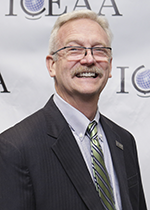 Technology Development Cost and Schedule Modeling
Technology Development Cost and Schedule Modeling
Chuck Alexander
A tangible need exists in the scientific, technology, and financial communities for economic forecast models that improve new or early life-cycle technology development estimating. Industry models, research, technology datasets, modeling approaches, and key predictor variables are first examined. Analysis is then presented, leveraging a robust industry project dataset, applying technology and system-related parameters to deliver higher performing parametric cost and schedule models.
DA07 – PPT – Alexander – Modeling Early Tech Development
DA07 – Paper – Alexander – Parametric Modeling for Early Tech Development
Implementation & Operations Category Winner:
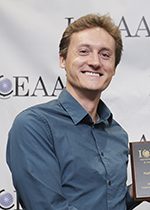 Beyond RIFT: Improved Metrics to Manage Cost and Schedule
Beyond RIFT: Improved Metrics to Manage Cost and Schedule
Nicholas DeTore
“Risk-Informed Finish Threshold” (RIFT) presented an innovative solution to the problem inherent in schedules that risk analysis results (time) cannot be allocated the same way as in cost models (dollars). Developing RIFT validation methods inspired an exploration into analyzing simulation data more meticulously. Methods described here provide unique insight into cost and schedule uncertainty results while introducing powerful new techniques to improve a project’s potential to complete on time, on budget.
EV05 – PPT – DeTore – Beyond RIFT
EV05 – Paper – DeTore – Beyond RIFT
Policy & Standards Category Winner:
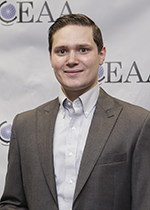 A History of Thought in Defense Acquisitions
A History of Thought in Defense Acquisitions
Eric M. Lofgren
As Congress debates another round of defense acquisition reform, the necessary role for the cost estimator is affirmed. But how did this role come about and what are future implications? From the famed RAND systems analyses of the 1950s to the introduction of data reporting systems still in use today, this paper will explore the rich history of thought in defense acquisition, giving a special eye to controversies and continuing challenges that affect cost estimators.
PS09 – Paper – Lofgren – History of Thought in Defense Acquisitions
PS09 – PPT – Lofgren – History of Thought in Defense Acquisitions
Parametrics & Risk Category Winner:
 Being Certain About Uncertainty, Part 1
Being Certain About Uncertainty, Part 1
Andy Prince
Doing cost risk analysis is hard because we don’t really know what a good cost risk analysis looks like. In this paper we will explore the challenges to doing good cost risk analysis and discuss ways to know if your cost risk analysis is any good. We will also examine the phenomena of extreme cost growth and lay the groundwork for future work.
RI05 – PPT – Prince – Being Certain about Uncertainty
RI05 – Paper – Prince – Being Certain about Uncertainty
Software & Agile Category Winner:
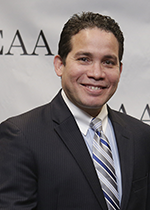 Software Effort Estimation Models for Contract Cost Proposal Evaluation
Software Effort Estimation Models for Contract Cost Proposal Evaluation
Wilson Rosa
Corinne Wallshein
This study will introduce regression models and benchmarks for predicting software development effort using input variables typically available at contract bidding phase. The analysis is based on 200 DoD projects delivered from 2004 to 2016. The first set predicts effort using initial software requirements along with peak staff, application domain, and other categorical variables. The second set predicts effort specifically for agile software development using data from 16 agile projects.
Keynote Speakers:
Tuesday, June 6: Gordon M. Kranz
Office of Performance Assessments and Root Cause Analyses (Retired)
Enlightened Integrated Program Management, LLC
Cost estimating methods approaches have changed many times over the last thirty years. Have these changes improved productivity and our ability to accurately estimate the cost? Mr. Kranz will discuss current trends in Agile acquisition and how they have been influenced by those changes.
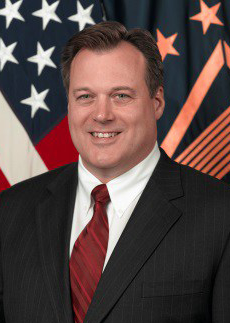 Prior to his retirement, Gordon M. Kranz served as Deputy Director PARCA for Earned Value Management. Mr. Kranz initiated the Government and industry collaboration on Agile – EVM implementation to form the basis for current emerging guidance and policy. Before his role at PARCA Mr. Kranz was the Executive Director, Engineering and Analysis, for the Defense Contract Management Agency.
Prior to his retirement, Gordon M. Kranz served as Deputy Director PARCA for Earned Value Management. Mr. Kranz initiated the Government and industry collaboration on Agile – EVM implementation to form the basis for current emerging guidance and policy. Before his role at PARCA Mr. Kranz was the Executive Director, Engineering and Analysis, for the Defense Contract Management Agency.
With over 35 years of experience in the DoD and private sectors, Mr. Kranz currently serves as President of Enlightened IPM, a consulting firm providing Government agencies and contractors advice and guidance on integrated program management. Mr. Kranz received a bachelor’s degree from North Dakota State University and a master’s degree from the Air Force Institute of Technology. He is a certified Program Management Professional, a Professional Scrum Master I (PSM1) and is DAWIA Engineering level 3 certified.
Wednesday, June 7: Dr. Mark Meckler
University of Portland
CraftingAStrategy.com
A discussion of how the intersection of values (in the leadership and culture sense) and adding value (in the marketing and business sense) plays out in the craft beer industry; and how craft beer industry members use their focus on values, and utilize four very different categories of adding value to increase revenue and keep costs down in order to gain healthy margins.
 Dr. Mark R. Meckler, is Associate Professor of Strategy and Leadership at the University of Portland, and Co-Founder & Vice President of Strategy and Curriculum at CRAFTINGASTRATEGY.COM. He has lived, served and traveled all over the world. Dr. Meckler is a classically trained saucier, and a former chef and food & beverage manager. Dr. Meckler also worked in investment banking at Baring Securities in New York City as a closed-end fund analyst. He began his teaching career in New York State, and continued teaching throughout his doctoral program years, and for 16 years as an assistant and an associate professor. Dr. Meckler has published numerous journal articles related to strategic management, truth-telling, controlled innovation, human motivation, and cross-cultural management. He also writes extensively for Crafting A Strategy. Dr. Meckler now lives in Portland, Oregon metropolitan area with his wife and three children.
Dr. Mark R. Meckler, is Associate Professor of Strategy and Leadership at the University of Portland, and Co-Founder & Vice President of Strategy and Curriculum at CRAFTINGASTRATEGY.COM. He has lived, served and traveled all over the world. Dr. Meckler is a classically trained saucier, and a former chef and food & beverage manager. Dr. Meckler also worked in investment banking at Baring Securities in New York City as a closed-end fund analyst. He began his teaching career in New York State, and continued teaching throughout his doctoral program years, and for 16 years as an assistant and an associate professor. Dr. Meckler has published numerous journal articles related to strategic management, truth-telling, controlled innovation, human motivation, and cross-cultural management. He also writes extensively for Crafting A Strategy. Dr. Meckler now lives in Portland, Oregon metropolitan area with his wife and three children.
Thursday, June 8: Dr. David Raffo, Ph.D.
Portland State University
Process Simulation Modeling (PSIM) technology is a data-driven, model-based, bottoms-up approach to cost estimation that can be used to evaluate issues related to process strategy, process improvement, tool adoption, project management, and process design. Recent developments in process simulation tools have drastically cut the costs to develop models and new methods have been created to apply PSIM quickly, enabling PSIM to provide greater business value. This presentation shows examples of how process simulation has been implemented within industry and government organizations to improve performance results and improve key process areas.
 Dr. Raffo is a Professor at Portland State University with joint appointments in Business, Engineering, and Computer Science. He has been a Visiting Scientist at the Software Engineering Institute (SEI) and a member of the International Process Research Consortium (IPRC). Dr. Raffo’s research interests include Strategic Systems Engineering, Economic Analysis of Design Decisions, Process Improvement, Quality Assurance Planning and Cost Estimation. Dr. Raffo is Editor-in-Chief of the Journal of Software Evolution and Process – the leading academic journal in the field of software process. He has over seventy peer reviewed publications in the field of software engineering and three U.S. Patents.
Dr. Raffo is a Professor at Portland State University with joint appointments in Business, Engineering, and Computer Science. He has been a Visiting Scientist at the Software Engineering Institute (SEI) and a member of the International Process Research Consortium (IPRC). Dr. Raffo’s research interests include Strategic Systems Engineering, Economic Analysis of Design Decisions, Process Improvement, Quality Assurance Planning and Cost Estimation. Dr. Raffo is Editor-in-Chief of the Journal of Software Evolution and Process – the leading academic journal in the field of software process. He has over seventy peer reviewed publications in the field of software engineering and three U.S. Patents.
Dr. Raffo has received research funding from the National Science Foundation (NSF), the Software Engineering Research Center (SERC), NASA, IBM, Motorola, Robert Bosch, Northrop-Grumman and other organizations. Through his consulting practice, Dr. Raffo works with organizations to apply process simulation and modeling tools to support integrated systems development in commercial and government organizations. Dr. Raffo received his Ph.D. from Carnegie Mellon University and a BSE from the University of Michigan.
Previous ICEAA Workshops & Events:
Most papers and presentations from 2013 and earlier are available. Email us to request a paper or presentation.

